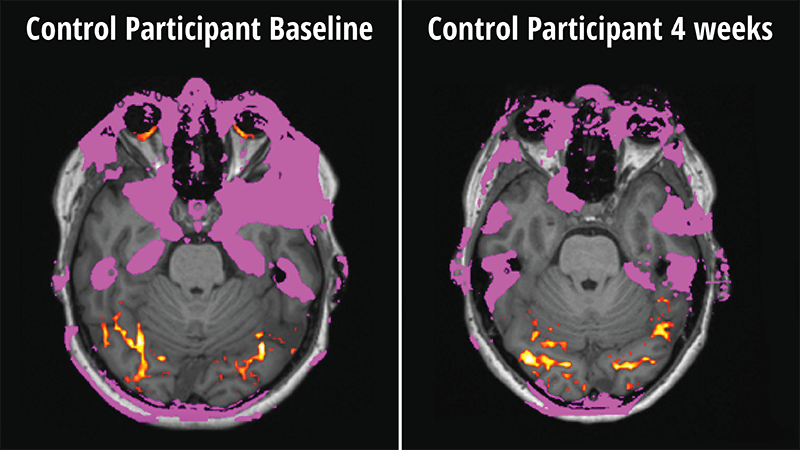
As you know, I’m a massive fan of intuitive eating. But what if your intuition is always for chocolate or pizza?
There is no doubt certain foods have physically addictive qualities that can throw a spanner in the works of developing your ability to intuitively eat. The food industry creates hyperpalatable foods – super sugary, salty and fatty foods designed specifically to addict our brains. Foods are meticulously researched to pinpoint the exact “bliss point” for taste (e.g., making sure it’s really sweet, but not too sweet) and “mouth feel” for texture (e.g., just the just right level of smoothness), maximizing not only tastiness but also things that food marketing experts call “cravability”, “snackability” and “moreishness”. As these foods create powerful addiction pathways in our brains, they can circumvent or disrupt our natural intuition, making intuitive eating a lot harder.
In these cases I like to help people “unlearn” their food addictions through tapping. The food industry has a lot of crafty tricks. And now, thankfully, so do we.
Acupressure is based on the same principles as acupuncture, so one theory as to why tapping on acupressure points works is that you’re balancing out your energy around food and things that relate to it. While there is some evidence to support this1, I know next to nothing about Chinese medicine (and if I’m honest am not too interested in learning!) Let me explain what we know using something that’s more familiar to my clients and I:
The fascinating changes that happen in your brain when you tap.
Dr Peta Stapleton is the first researcher to measure the effects of tapping for food cravings on the brain using Functional MRI (fMRI). Participants were put in the fMRI and shown pictures of yummy foods like chocolate, doughnuts and take-aways. Increased neural activity leads to more blood oxygen, which shows up on the scans (in orange). Here are some pictures from a participant in the control group in the trial:

As you can see, certain parts of the participant’s brain lit up like a Christmas tree when seeing the food. This was typical of control condition participants – their brains were excited by the food cues when they first entered the fMRI and similarly excited 4 weeks later.
In the tapping group, participants entered the fMRI for a baseline measure, then underwent 4 sessions of tapping before they were put back in the fMRI. Here’s an example of what happened in a female participant.

After tapping her brain showed little-to-no neural activity while looking at the same images. Tapping deactivated the part of the brain that got excited by the high fat, salty and sugary foods. Here’s a typical example of a male participant.

As you can see his brain is no longer interested in the high-impulse low-nutrition foods. These findings were consistent among all but one participant, and show that the somewhat mystical process of tapping is having a:
Very real effect on the brain.
This is why tapping works in so well with intuitive eating principles. Journalist Sarah Watts wrote about how tapping cured her sugar addiction. At first she didn’t eat sugar for two whole months. But when she started again she found she was eating it in a very different way. She was able to mindfully eat and enjoy sugary foods, but ate much less and felt in control when she did. She tapped herself into the intuitive eating happy place 🙂
Sarah’s results are actually quite typical. Ronna was one of around 600 participants in our Tapping for Weight Management Online Program worldwide clinical trial2 and said:
– Ronna Sarvas Weltman
This is why, as well as being the only program where Peta (who is the world leading expert) herself takes you through the tapping technique, our program is also the only one to combine intuitive eating principles with tapping. We combine a therapy that works faster than the psychological gold standard, with an approach that works better than dieting. The program allows you to experience results like the brain-scan participants, Sarah, Ronna and thousands of others like them!
By now you know everything you need to know, so why not join our online program and start to experience the benefits yourself? Here’s my special discount code to help you over the line!
Happy tapping 🙂 🙂 🙂
Glenn
1. Church, D., Stapleton, P., Yang, A., & Fred Gallo, F. (2018) Is Tapping on Acupuncture Points an Active Ingredient in Emotional Freedom Techniques? A Systematic Review and Meta-analysis of Comparative Studies. Journal of Nervous and Mental Disease, 206, pp 783–793.
2. As psychologists are not ethically permitted to use testimonials for their face-to-face work with clients, I have included qualitative feedback from a participant in the clinical trial of our online tapping program. You may consider this more reliable than general product testimonials as they happened during the data collection phase of the trial and before the program became a commercial product. The trial results are in publication, with the accepted abstract printed below. The trial was a great opportunity to test and improve the program and results showed the same improvements as face-to-face tapping!
Online Group Delivery of Psychological Treatment for Food Cravings and Weight Management: Treatment versus Waitlist.
“Obesity is rapidly increasing worldwide, with an estimated 13 percent of adults (i.e., above the age of 18) being clinically obese and 39 percent being overweight (World Health Organisation, 2014). Existing weight loss interventions recommend a combination of dietary restraint and physical exercise, which have been found to be unsuccessful in the long-term as they do not target the psychological determinants linked with overeating (Anderson et al., 2009; Sojcher, Perlman, & Fogerite, 2012). The current research sought to investigate if a new type of therapy, emotional freedom techniques (EFT), could successfully reduce food cravings and aid weight loss in an online format (Church, 2013a; Stapleton, Sheldon & Porter, 2012). EFT utilises evidence-based cognitive and behavioural techniques as well as acupressure stimulation, or ‘tapping’, which has been found to have anxiety-reducing effects (Church, 2013b; Fang et al., 2009). Participants completed an 8-week online EFT intervention targeting food cravings, dietary restraint, subjective power of food, weight, somatic symptom severity, anxiety, and depression symptoms, or a waitlist control condition. Post-intervention analyses revealed significant reductions on all measures for participants in the EFT condition, with no significant differences for participants in the waitlist control group. Six- and 12-month follow-up analyses revealed significant reductions from pre-intervention on all measures. Analyses also revealed that as individuals’ food cravings improved, their symptoms of anxiety and depression improved. The current study presents the first clinically researched trial of online delivery of EFT for weight management, and provides preliminary findings of the utility of online EFT as an adjunct tool in the fight against obesity worldwide.”



